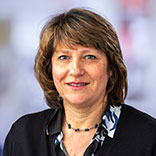
Ruth Etzioni, PhD
Biostatistics, Early detection, and Cancer Modeling
Dr. Ruth Etzioni is a biostatistician and population health scientist who co-leads the FHIND Cancer Research Group. She holds the Rosalie and Harold Rea Brown endowed chair at Fred Hutch Cancer Center. Her work combines analytics and modeling to address the evidence gaps that inevitably arise in making decisions and developing policies for cancer control. She is the Principal Investigator of the prostate cancer modeling group for the Cancer Intervention and Surveillance Modeling Network and a member of the NCCN and AUA panels on prostate cancer early detection in addition to the American Cancer Society’s early detection guidelines panel. Dr Etzioni recently received an NCI Outstanding Investigator award to study the clinical and population impact of novel cancer diagnostics including multi-cancer early detection assays and advanced imaging technologies. She is a fellow of the American Statistical Association, past chair of its Health Policy Statistics section, and author of the text, “Statistics for Health Data Science: an Organic Approach.”

Aasthaa Bansal, PhD
Biomarkers, Prediction Models, Outcomes Research
Dr. Aasthaa Bansal is an Associate Professor at The Comparative Health Outcomes, Policy, and Economics (CHOICE) Institute, University of Washington (UW). Her research focuses on biomarkers and prediction models for dynamic decision making and comparative effectiveness and outcomes research using large healthcare databases. She holds a joint appointment at the Fred Hutch Cancer Center, where she collaborates primarily with investigators at the Hutchinson Institute for Cancer Outcomes Research (HICOR). At HICOR, she has been a co-investigator on a PCORI-funded large pragmatic trial, as well as projects involving the analysis of survival, costs and resource utilization in cancer, studying bankruptcy among cancer patients, using cure modeling to develop methods for economic analysis and investigating disparities in cancer treatment and outcomes.
Her recent honors include a seven-year Method to Extend Research in Time (MERIT) R37 award from the National Cancer Institute to develop a dynamic decision-making framework that utilizes machine learning to identify personalized risk-adaptive surveillance strategies among cancer survivors. This research seeks to shift the paradigm of how routinely collected patient information is used for clinical management, by innovatively coupling data-adaptive prediction modeling with decision theory (value of information methods) and implementing the framework on rich electronic health record data. She has also been the recipient of the American Statistical Association’s Statistics in Epidemiology Young Investigator Award, the ISPOR Bernie J. O'Brien New Investigator Award, and Best New Investigator Podium and Poster Presentation awards from ISPOR for her work on innovatively applying prediction models and cure models in health economics and outcomes research.
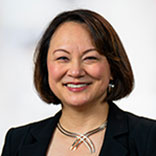
Delphine Chen, MD
Nuclear Medicine and Molecular Imaging
Dr. Delphine Chen holds the Will B. Nelp Endowed Professorship in Nuclear Medicine at the University of Washington and is the Director of Molecular Imaging at Fred Hutch Cancer Center. She is a board-certified nuclear medicine physician with broad expertise in PET and nuclear medicine molecular imaging diagnostic tests and specific clinical interests in cancer imaging and therapy. Current research focuses on the use of PET tracers to determine how patients are responding to treatment. She led the first in-human trial of these tracers, which has served as the foundation for multiple clinical trials currently being conducted at three major US medical centers.

Marianne Dubard-Gault, MD, MS
Medical Oncology and Cancer Genetics
Dr. Marian Dubard trained in preventive medicine and oncology at the Université de Bordeaux II, France, and in cancer genetics at Memorial Sloan Kettering Cancer Center and Weill Cornell Medicine in New York city, NY. She joined the Fred Hutch Cancer Center in October 2019 to serve as the medical director of the clinical cancer genetics and high risk service. She is an assistant professor in the division of medical genetics, department of medicine at University of Washington. In her clinic, she helps counsel people before and after genetic testing when they are diagnosed with cancer or when they are unaffected by cancer but at an increased risk of cancer(s). She also guides implementation of a personalized screening plan when someone is found to have a genetic predisposition to cancer(s). She follows patients with Li-Fraumeni syndrome, Cowden syndrome among many other hereditary cancer syndromes. Her research projects include peer coaching of community oncologists in ordering genetic testing when NCCN guidelines are met, utilizing paired tumor-normal genetic testing for patients with upper GI cancers, and participating in the development of a clinically annotated genetic variant database called BBI-CVD that facilitates partnership with researchers who perform high-throughput functional studies to advance knowledge and develop novel therapies. Dr Dubard is also working on expanding high risk and prevention services for people at high risk of cancer in the community and she is building a cancer predisposition registry and repository to help expand our knowledge for people with hereditary cancer syndromes.
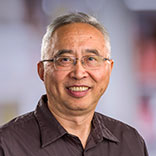
Ziding Feng, PhD
Biostatistics and Early Detection
Dr. Ziding Feng is a biometrics expert who focuses on biomarker evaluation for cancer risk assessment, early detection, diagnosis and prognosis. He is the principal investigator of the Data Management and Coordinating Center for the National Cancer Institute-funded Early Detection Research Network, or EDRN, a multicenter research collaboration that focuses on biomarker discovery and validation. In that role, he is responsible for coordinating all of EDRN’s network collaborative research activities, providing logistical support and conducting statistical and computational research for data analysis. In addition, he is the principal investigator for the Translational Liver Cancer (TLC) Consortium Data Management and Coordinating Center funded by NCI, the principal investigator for the New Onset Diabetes Coordinating Center funded by NIDDK/NCI and the principal investigator for the Early Detection Initiative Coordinating Center funded by PanCAN. Dr. Feng has also acted as lead biostatistician on a number of large, multicenter biomarker trials for cancers of the prostate, liver, lung, colon and esophagus.

Bill Grady, MD
GI Oncology and Biomarker Development
Dr. William “Bill” Grady is a molecular biologist and board-certified gastroenterologist. He is an independent NIH funded PI with >20 years of experience in translational research related to gastrointestinal cancer. He is a Co-Head of the GI Cancer Program of the Fred Hutch Cancer Center/University of Washington Comprehensive Cancer Center and the Director of Translational Research for the Gastroenterology Division at the University of Washington. He is the Medical Director of the GI Cancer Prevention Program Clinic at the Fred Hutch Cancer Center. He is also the contact PI of a multi-PI Early Detection Research Network (NCI) Biomarker Characterization Center. He is actively involved in numerous translational and clinical trials of emerging biomarker assays for gastrointestinal cancer and has an active program developing novel biomarker assays for liver, colorectal and esophageal adenocarcinomas. His work is investigating the role of the genetic and epigenetic alterations in tumor initiation and progression and identifying molecular factors that influence the risk of disease. He is also developing biomarkers for colorectal cancer, esophageal cancer, and hepatocellular carcinoma.

Gavin Ha, PhD
Computational Biology and Liquid Biopsy Assay Development
Dr. Gavin Ha is a computational biologist who studies the role of genomic alterations in cancer. He and his research team focus on developing and applying computational methods to profile cancer genomes from patient tumors and blood. His laboratory develops novel approaches to study cell-free DNA released from tumor cells into the blood (also known as circulating tumor DNA). The use of this approach, called “liquid biopsies,” combined with insights from tumor genome analysis, will be critical to uncover causes of treatment resistance, discover novel genetic biomarkers from the blood, and develop non-invasive applications for cancer precision medicine.
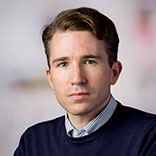
Michael Haffner, MD, PhD
Pathology
Dr. Michael Haffner is an Assistant Member at the Fred Hutch Cancer Center and an Assistant Professor in the Department of Laboratory Medicine and Pathology at the University of Washington, Seattle. Prior to joining Fred Hutch, he has completed a clinical fellowship in Genitourinary Pathology and a research fellowship in cancer epigenetics at Johns Hopkins. His laboratory research focuses on multiple aspects of prostate cancer biology, molecular pathology and digital image analysis. In addition, he is a practicing Genitourinary Pathologist with clinical expertise in prostate cancer.
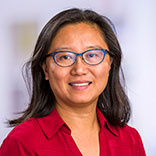
Li Hsu, PhD
Biostatistics and Molecular Epidemiology
Dr. Li Hsu is a biostatistician who develops statistical methods with an emphasis on analysis of survival outcomes, genetics and genomics data. Dr. Hsu has developed methods for absolute risk estimation and risk prediction, complex sampling designs, genome-wide association and gene-environment interaction of common and rare variants, analysis of genomic instability, and incorporation of functional data into genetic association studies.
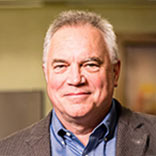
Paul Kinahan
Radiology
Paul Kinahan is Vice Chair for Research and Professor of Radiology, Head of the Imaging Research Laboratory, and Director of PET/CT Physics at the University of Washington. His research is focused on developing and improving PET technology. Projects include developing dual-mode PET/CT scanners for oncology imaging, image reconstruction algorithms, quantitative imaging for treatment planning and assessing response to cancer therapy, and improving medical image quality.

Paul Lampe, PhD
Biomarker Development
Dr. Paul Lampe is Professor and Head of the Translational Research Program in the Public Health Sciences Division. The Lampe lab uses broad antibody-based proteomic, glycomic and autoantibody screens and validation studies primarily for lung, but also pancreas, colon and breast cancer biomarkers using high-density antibody arrays. Dr. Lampe has been a member of the Early Detection Research Network for 17 years (currently as part of a Clinical Validation Center focused on breast cancer), is MPI on a R01 and co-leads an early detection project on lung cancer early detection as part of the FHCC Lung SPORE, is a co-Investigator on the Women’s Health Initiative, a R01 on synergy of PET/CT Imaging and Peripheral Blood Assays and a U01 Translating Autoantibodies Into Chimeric Antigen Receptor-T cell Therapy for Small Cell Lung Cancer.

Cristoph Lee, MD, MS, MBA
Radiology
Dr. Cristoph Lee is Professor of Radiology at the University of Washington (UW) School of Medicine and Director of the Northwest Screening and Cancer Outcomes Research Enterprise (NW-SCORE) at UW. Dr. Lee’s multidisciplinary research program focuses on the evaluation of emerging cancer screening technologies, with grant-funded efforts spanning the fields of artificial intelligence, cancer epidemiology, health disparities, and population health. He is currently Principal Investigator of multiple R01 grants awarded by the National Institutes of Health (National Cancer Institute). He currently serves on Washington state’s Health Technology Clinical Committee, an independent body of medical experts that makes coverage decisions for new medical technologies.
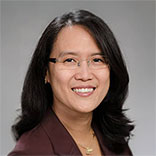
Janie Lee, MD, MSc
Radiology
Dr. Janie Lee is the Director of Breast Imaging at Fred Hutch Cancer Center and Professor of Radiology at the University of Washington. She is a certified diplomate of the American Board of Radiology and a Fellow of the Society of Breast Imaging. Dr. Lee aims to advance women’s health through a combination of clinical, research, and educational efforts. In the breast imaging clinic, she applies state-of-the-art technologies to diagnose breast cancer. Dr. Lee’s research focuses on integrating information about patient risk factors, cancer biology, and new imaging tests to improve how we diagnose new breast cancers or recurrences in survivors.

Jeff Leek, PhD
Biostatistician and Everyone’s Favorite Data Scientist
Dr. Jeff Leek is Chief Data Officer, Vice President, and J Orin Edson Foundation Chair of Biostatistics at the Fred Hutch Cancer Center. Previously, he was a professor of Biostatistics and Oncology at the Johns Hopkins Bloomberg School of Public Health and co-director of the Johns Hopkins Data Science Lab. His group develops statistical methods, software, data resources, and data analyses that help people make sense of massive-scale genomic and biomedical data. As the co-director of the Johns Hopkins Data Science Lab he helped to develop massive online open programs that have enrolled more than 8 million individuals and partnered with community-based non-profits to use data science education for economic and public health development. He is a Fellow of the American Statistical Association and a recipient of the Mortimer Spiegelman Award and Committee of Presidents of Statistical Societies Presidential Award.

Lucas J. Liu, PhD
Computer Scientist and AI Research Scientist for Healthcare
Dr. Liu received his PhD in Computer Science from University of Kentucky. His research interests lie in developing unbiased, interpretable, and robust artificial intelligence (AI) models for healthcare. The primary objective of these models is to provide precise and equitable predictions for patient outcomes. Dr. Liu joined Dr. Etzioni's lab at Fred Hutch Cancer Center in July 2023, and his current work focuses on developing innovative AI algorithms to enhance the diagnosis, treatment, and recurrence monitoring of prostate and breast cancer.
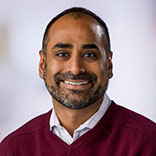
Viswam S. Nair, MD, MS
Biomarkers
Dr. Viswam Nair translates fundamental scientific discoveries into the clinic to improve the care of people with lung cancer. His research focuses on biomarkers, or telltale biological markers of health or disease. He studies how to best integrate molecular and imaging-based biomarkers into clinical practice to improve lung cancer detection and treatment. Dr. Nair is also a physician with board certifications in internal medicine, pulmonary disease and critical care. He cares for patients at Fred Hutch Cancer Center and the University of Washington Medical Center.
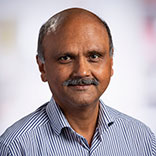
Kikkeri Naresh, MMBS, DCP, MD, FRCPath
Hemopathology
Dr. Kikkeri Naresh is a pathologist, an expert in the laboratory analysis of tissue samples for diagnosis or other medical purposes. He specializes in hemopathology — the pathology of blood tissues — especially lymphoma and bone marrow pathology. As a translational researcher, Dr. Naresh conducts laboratory studies to improve patient care. His focus is the biology of lymphoma, including its genome, formation and cellular environment (or microenvironment). He also develops new algorithms to improve lymphoma diagnosis and precision medicine. His other research interests include lymphoma-causing viruses, blood stem cell transplantation and plasma cell myeloma.

Peter Nelson, MD
Precision Oncology
Dr. Pete Nelson studies prostate cancer. Among men, prostate cancer is the most common type of cancer and the second leading cause of death from cancer. Though many cases are curable, treatment can have negative side effects, and researchers have yet to develop a cure for advanced, hormone-deprivation-resistant prostate cancer. Dr. Nelson works to understand what triggers the disease and how it develops, as well as to improve therapies and discover new treatment targets. His research covers everything from inherited mutations that increase the risk of developing advanced prostate cancer to the link between aging and prostate cancer. He also works to identify genetic alterations in prostate tumors that can help oncologists tailor treatment for individual patients, and recently teamed up with Dr Gavin Ha to improve the capabilities of liquid biopsies to distinguish prostate cancer subtypes in men with metastatic disease.
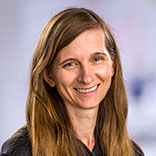
Ulrike Peters, PhD, MPH
Molecular Epidemiology
Dr. Ulrike “Riki” Peters, a molecular and genetic epidemiologist, is associate director of the Public Health Sciences Division at Fred Hutch. Her research focuses on the genetic epidemiology of colorectal cancer as well as the impact of race and ethnicity on underlying genetic risk factors for common, complex diseases. In 2007, Dr. Peters initiated the Genetics and Epidemiology of Colorectal Cancer Consortium, or GECCO, the world’s largest molecular and genetic consortium for colorectal cancer. The consortium involves researchers from more than 130 institutions around the world. Together, they identify novel genetic risk factors for colorectal cancer to create personalized screening strategies and better drug therapies. Using GECCO data, Dr. Peters and colleagues also study the interplay between genes and the environment on colorectal cancer risk via genome-wide association studies. Dr. Peters also leads research that utilizes data from the Women’s Health Initiative minority cohort to understand potential genetic contributions to health disparities.
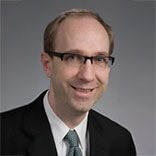
Colin Pritchard, MD, PhD
Molecular Diagnostics
Dr. Colin Pritchard leads a team aiming to develop innovative molecular diagnostics for the detection of germline and somatic mutations that guide therapeutic decision making. The Pritchard Lab is actively exploring noninvasive methods for sampling cancer mutations including cell‑free microRNA, cell‑free DNA, and circulating tumor cell‑associated nucleic acids. They are investigating pre‑analytic and biological variation that impact serum and plasma circulating nucleic acid biomarker measurements to inform the appropriate use and interpretation of “liquid biopsy” blood tests.
Dr. Pritchard’s laboratory is working in several areas to make precision medicine a reality for men with prostate cancer. Projects include application of UW‑OncoPlex™ for men with prostate cancer, characterization of hypermutation as a predictive biomarker in advanced prostate cancer, and development of novel non‑invasive diagnostics to guide therapy in advanced disease.
In addition,. Dr. Pritchard’s lab has developed methods to detect MSI and hypermutation from next generation sequencing (NGS) data. Using this technology we developed the first ever first ever tumor‑based NGS test for Lynch syndrome (ColoSeq Tumor).

Jerald Radich, MD
Medical Oncology
Dr. Jerald Radich is a Member of the Clinical Research Division, the Director the Molecular Oncology Lab and the Kurt Enslein Endowed Chair at the Fred Hutch Cancer Center, and Professor of Medicine at the University of Washington School of Medicine. He is Chair of the Leukemia Translational Medicine Committee of the Southwest Oncology Group. He was the inaugural Chair of the National Cancer Institute and National Institute of Health Leukemia Steering Committee, and a past member of the Board of Scientific Counselors of the NIH Genome Research Institute. He is the past-chair of the CML Committee of the National Comprehensive Cancer Network, a member of the European Leukemia Network CML committees, and is on the Scientific Board of the International CML Foundation and the Max Foundation. He currently leads the Laboratory Committee of the NCI AML Precision Medicine Initiative and leads the Foundation of the NIH’s program in measurable residual disease in AML. Dr. Radich’s laboratory research centers on the molecular biology of response, resistance, and progression in adult and chronic leukemia. In addition, the CLIA Molecular Oncology Lab provides the molecular diagnostic support for many institutional, U.S. Intergroup, international, and pharmaceutical trials. He was awarded the International CML Foundation Award in 2017 and the Washington Global Health Alliance Partnership Award in 2019 for his lab’s work on diagnosing and monitoring CML in the developing world.

Scott Ramsey, MD, PhD
Internal Medicine and Health Economics
Dr. Scott Ramsey is a physician, cancer researcher and health economist. He co-directs the Hutchinson Institute for Cancer Outcomes Research, or HICOR. The institute aims to reduce the economic and human burden of cancer by improving the efficiency and effectiveness of cancer care. Dr. Ramsey’s research focuses on cancer outcomes, health care delivery, and economic evaluations of new and existing cancer screening and treatment technologies. Dr. Ramsey’s studies have identified financial stress, also known as “financial toxicity,” as a side effect of cancer treatment. He has shown that people diagnosed with cancer are 2.5 times more likely to declare bankruptcy, and those who do so face an 80 percent higher risk of dying than those who don’t declare bankruptcy.
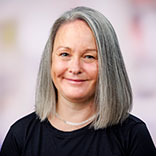
Carolyn Rutter, PhD
Biostatistics and Cancer Modeling
Dr. Carolyn Rutter is a professor with both the Hutchinson Institute for Cancer Outcomes Research (HICOR) and the Biostatistics Program within the Public Health Sciences Division. Her research interests include microsimulation modeling and model calibration, evaluation of diagnostic and screening tests, and meta-analysis and systematic reviews. She is interested in understanding and addressing health care inequities and assessing health care quality and provider performance. Dr. Rutter is a principal investigator for a Cancer Intervention and Surveillance Modeling Network (CISNET) team focused on colorectal cancer and led the development of the CRC-SPIN microsimulation model. Her CISNET work focuses on reducing the population burden of colorectal cancer by comparing the effectiveness of policies for CRC control. She is a fellow of the American Statistical Association.
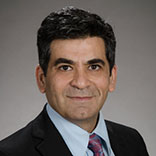
Dushyant Sahani, MD
Radiology
Dr. Dushyant Sahani, is Professor and Chair of Radiology at the University of Washington. He is currently involved in investigating new CT technologies such as multi-energy scanners and their impact on patient care, patient safety, healthcare cost and outcomes. In 2005 and 2007, he earned a research award from the Society of Gastrointestinal Radiology, and a Hounsfield award from the Society of Computed Body Tomography and MR in 2005. Dr. Sahani is the past president of SCBT-MR and Vice President for International Society of Computed Tomography (ISCT).
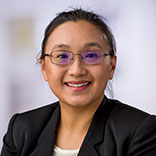
Cecilia Yeung, MD
Molecular Diagnostics and Bioinformatics
Dr. Cecilia Yeung’s research focuses on genomic changes, clonal evolution, and epigenetic control of gene expression in myeloid neoplasms (MDS, MPN and AML) and she has developed research expertise in biomarker and mutation profiling of cancers with cross correlation of clinical and pathology data (including histology, immunohistochemistry, flow cytometry, cytogenetics and clinical molecular testing). Dr. Yeung’s goal is to help all patients around the world get to appropriate treatments faster to enjoy better outcomes and improve survival. Her vision and personal expertise in molecular pathology has led to the pursuit of novel molecular diagnostic platforms and bioinformatics solutions that push the limits for faster, simpler, more accurate, and more cost-effective diagnostic tools.